Religion flourishes in greater purity, without than with the aid of Government
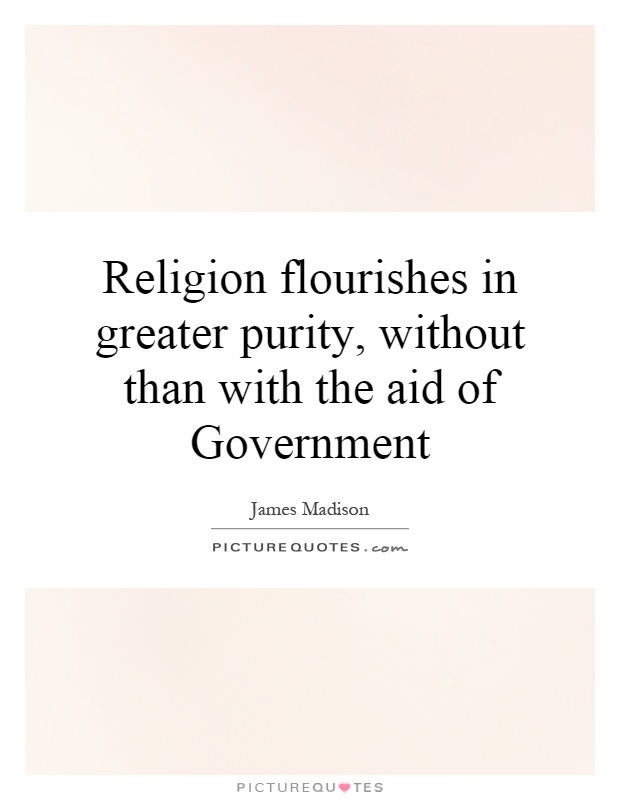
Religion flourishes in greater purity, without than with the aid of Government
James Madison, one of the founding fathers of the United States and the fourth President of the country, was a staunch advocate for the separation of church and state. He believed that religion flourishes in greater purity without the aid of government interference. This belief was rooted in his understanding of the dangers of mixing religion and politics, and the importance of protecting individual freedom of conscience.Madison's views on the relationship between religion and government were shaped by his experiences with religious persecution in colonial Virginia. He witnessed firsthand the oppressive effects of government-sponsored religion, where individuals were forced to adhere to a particular faith or face punishment. This experience led him to believe that true religious freedom could only be achieved when the government remained neutral on matters of religion.
Madison argued that when the government becomes involved in promoting or supporting a particular religion, it inevitably leads to corruption and the distortion of religious beliefs. He believed that religion should be a personal matter, left to the individual's conscience and free from government interference. By keeping religion separate from government, Madison believed that individuals would be able to practice their faith in a more authentic and meaningful way.
Furthermore, Madison believed that when the government gets involved in religious matters, it opens the door to discrimination and persecution of minority religious groups. He understood that religious diversity was a reality in America and that the government should not favor one religion over another. By maintaining a strict separation between church and state, Madison believed that individuals of all faiths could coexist peacefully and practice their beliefs without fear of persecution.




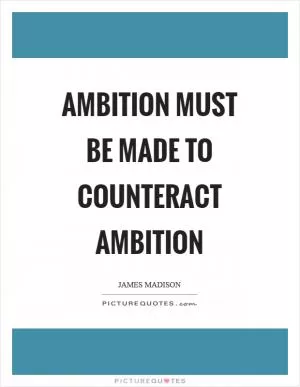
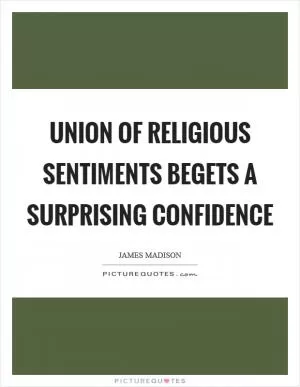
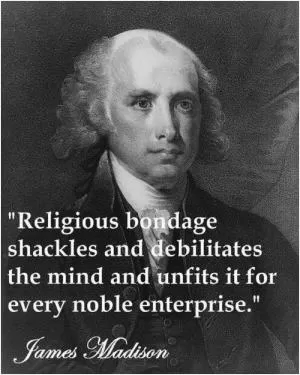


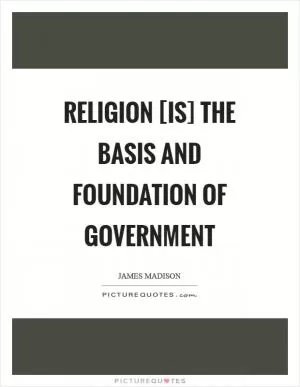
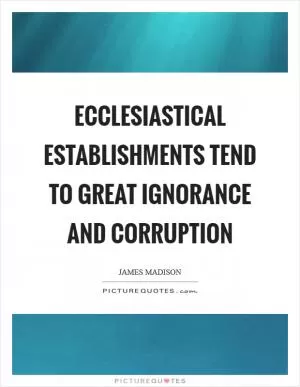
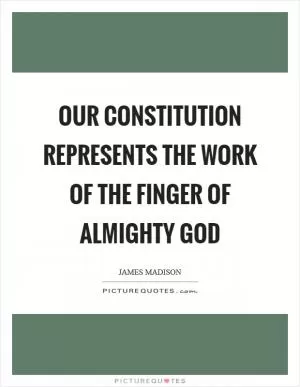
 Friendship Quotes
Friendship Quotes Love Quotes
Love Quotes Life Quotes
Life Quotes Funny Quotes
Funny Quotes Motivational Quotes
Motivational Quotes Inspirational Quotes
Inspirational Quotes